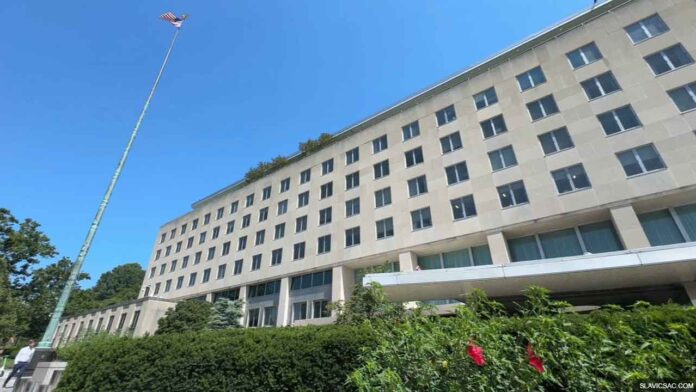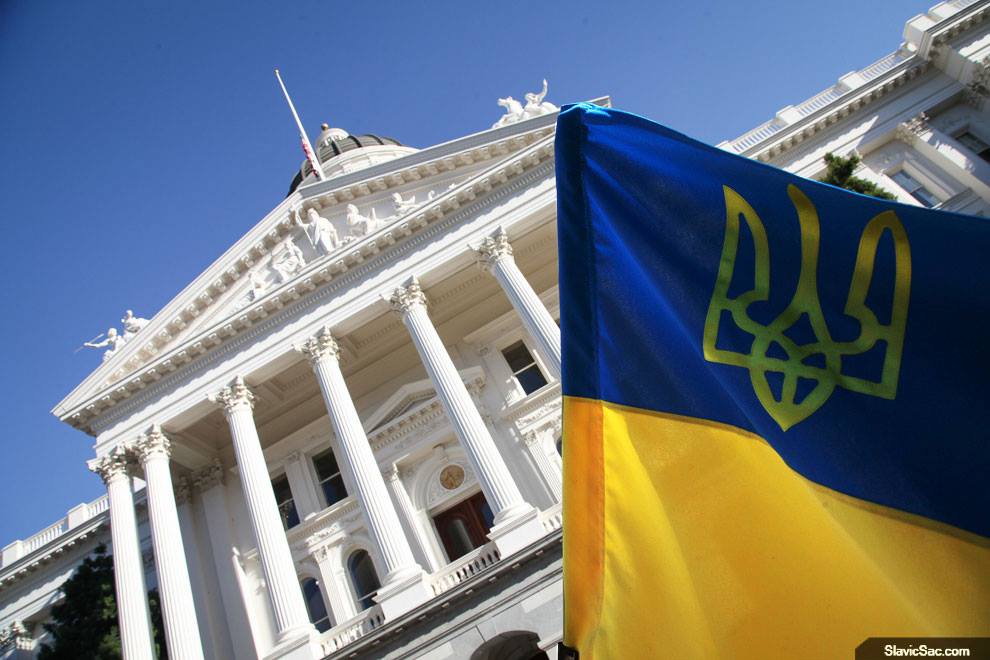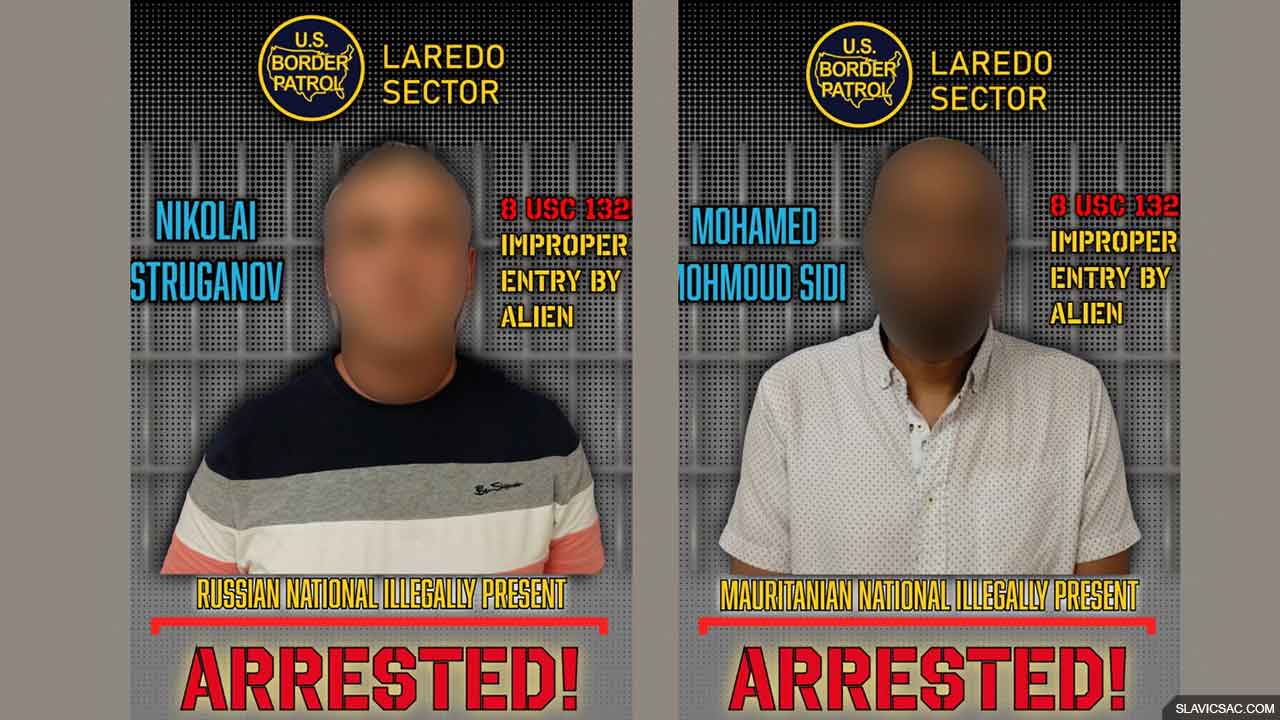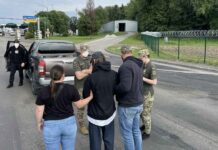Persecution of Christian Pacifists in Ukraine, Russia, and Post-Soviet States Discussed at U.S. State Department
РУССКИЙ: В Госдепарте обсудили преследование христиан-пацифистов в Украине, РФ
РУССКИЙ: Комиссия США по религиозной свободе рассмотрела обращения христиан из постсоветских стран
A group of activists from Slavic communities across the United States convened at the U.S. State Department’s Office of International Religious Freedom to raise concerns about the persecution of Christian pacifists in Ukraine, Russia, and other countries of the former Soviet Union.
The meeting featured reports on the situation facing Evangelical Christians, with particular focus on the religious persecution of those denied alternative civilian service and threatened with forced military conscription.
Boris Perchatkin, a veteran religious freedom advocate and leader in the religious emigration movement, has spent decades defending the rights of believers in post-Soviet states. He played a key role in advancing the Lautenberg Amendment adopted by the U.S. Congress in 1989, which enabled more than one million people from the USSR and former Soviet republics to emigrate to the U.S. due to religious persecution.
Perchatkin himself was imprisoned multiple times during the Soviet era for refusing to collaborate with the Communist Party and remaining faithful to his religious beliefs. Several of his family members faced similar repression. These personal experiences led him to dedicate his life to advocating for the rights of Christians and other religious minorities.
Today, Perchatkin continues his work by highlighting the plight of believers facing new waves of persecution in Russia, Ukraine, and neighboring countries.
In his remarks to State Department officials, Perchatkin described systematic violations of the rights of Christians who refuse to participate in the war between Russia and Ukraine. According to his testimony, such individuals are detained on the streets, subjected to violence, illegally held in the basements of military enlistment offices, and forcibly conscripted. He also cited instances of staged suicides, threats to family members, and criminal charges brought against conscientious objectors. He drew historical parallels with World War II and the Soviet era, when believers on both sides of the conflict were forced into military service.
Special Focus on Ukrainian Christian Pacifists in the U.S.
A significant part of the discussion centered on the status of Ukrainian Christian pacifists currently in the U.S. under the Uniting for Ukraine (U4U) program, as well as others on non-tourist visas or with expired or irregular immigration documents.
Leyla Keba, the wife of a Ukrainian pastor, explained that she and her husband arrived in the U.S. under the U4U program two years ago. She presented a petition requesting the creation of an immigration quota for approximately 8,000 Ukrainian nationals who fled the country due to the threat of religious persecution. The petition warns that returning to Ukraine could result in criminal prosecution, discrimination, and forced separation from families. It urges the U.S. government to provide a pathway to legal status for individuals whose religious beliefs prohibit them from taking part in armed conflict.
“These are not just refugees,” the petition states. “They are a specific group of law-abiding, hardworking, educated Christian families whose values align with the fundamental principles of American society.”
Pastor Dmytro Reshetnyk, from Springfield, Missouri, shared testimonies and video evidence of forced conscription practices in Ukraine and the legal prosecution of those refusing military service. He emphasized that believers in Ukraine who reject violence face government persecution, despite their loyalty and volunteer service to their communities.
“We are grateful to the U.S. for offering refuge,” he said, “and we ask for protection for those who risk their freedom because of their faith.”
Growing Pressure on Protestants in Russia
The discussion also addressed the deteriorating conditions for Protestants in modern-day Russia. Activists reported a resurgence of repression against unregistered churches since the beginning of the war in Ukraine. Denial of alternative service, pressure on congregations, church closures, and anti-religious media campaigns have contributed to what speakers described as an atmosphere of fear, similar to the late Soviet period.
According to Vasiliy Khayrutdinov, an activist from Washington State, Protestants in Russia are accused of being foreign agents, denied their legal right to perform alternative service, and in some cases, forced to flee the country under threat of arrest. His report included cases of prison sentences for refusing to bear arms and coercive tactics targeting relatives to lure believers back to Russia.
“Even if the war ends, these individuals will remain under threat of persecution,” said Khayrutdinov. “To their governments, they are draft dodgers. However, here in the U.S., they live in immigration limbo and face the risk of deportation.”
The delegation called on the State Department to consider allocating a special immigration quota for Christian pacifists fleeing religious and political persecution. Speakers emphasized that such a step would be a significant gesture in support of freedom of conscience—a value at the core of American democracy.
A similar report was previously presented to the United States Commission on International Religious Freedom in Washington, D.C.
Fundraising to support the mission and legal defense of persecuted believers has begun. Organizers are seeking financial backing to establish a permanent advocacy presence on Capitol Hill.






